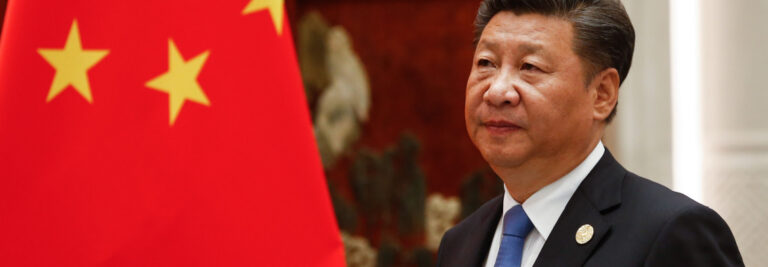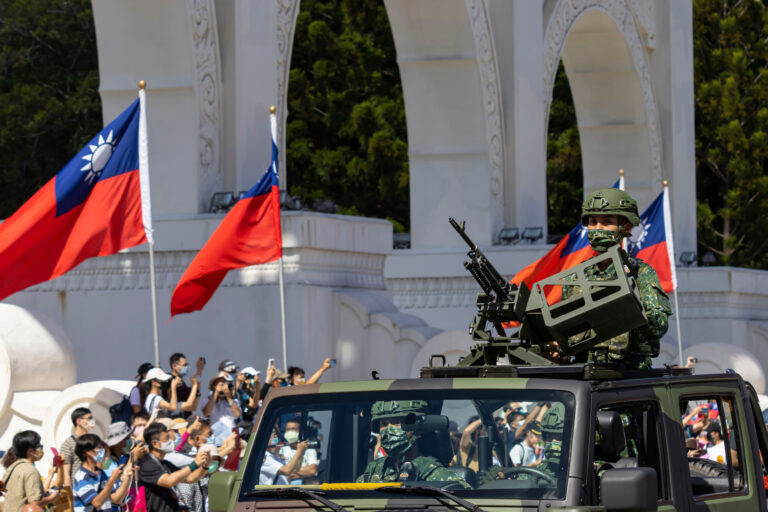Taiwan will hold local elections in late November this year. The “nine-in-one” elections—which will see voters elect mayors and city councilors in the special municipalities, as well as local officials in the other counties, county-level cities, and other localities—could be a bellwether of public sentiments ahead of the presidential election that will follow in 2024. The incumbent president, Tsai Ing-wen (蔡英文), is currently serving her second and last four-year term in office, and the field of candidates for the major political parties is wide open for the 2024 race. While the presidential election is still two years away, the race is already underway, even though no one is officially running yet. Indeed, the period between now and early 2023—the spring/summer of the year preceding an election is when the presidential primaries of the two parties are generally held—could determine which political figures are in the best shape to become their parties’ presidential candidates for 2024.
In the first polling on voter sentiments in 2022, the Blue-leaning TVBS Public Opinion Center (TVBS, 民調中心) conducted a survey in January of the satisfaction ratings for major political figures in Taiwan, and the results provide a glimpse into who voters may want to see in the running as presidential candidates in 2024. According to the poll, the top five most popular political figures in Taiwan with their corresponding popularity ratings are: Hou You-yi (侯友宜, 70 percent), Chen Shih-chung (陳時中, 57 percent), Ko Wen-je (柯文哲, 48 percent), Chen Chi-mai (陳其邁, 46 percent), and Cheng Wen-tsan (鄭文燦, 46 percent). Chu Li-luan (朱立倫), the current chairman of the KMT, came in 13th place with a 21 percent satisfaction rating.
| English Name |
Chinese Name | Party Affiliation | Current Position | Satisfaction Rating (2022) |
Satisfaction Rating (2021) |
|
| 1 | Hou You-yi | 侯友宜 | KMT | New Taipei City Mayor | 70% | 74% |
| 2 | Chen Shih-chung | 陳時中 | DPP | Health Minister | 57% | 66% |
| 3 | Ko Wen-je | 柯文哲 | TPP | Taipei City Mayor | 48% | 42% |
| 4 | Chen Chi-mai | 陳其邁 | DPP | Kaohsiung Mayor | 46% | 36% |
| 5 | Cheng Wen-tsan | 鄭文燦 | DPP | Taoyuan Mayor | 46% | 50% |
| 6 | Huang Wei-che | 黃偉哲 | DPP | Tainan Mayor | 43% | 41% |
| 7 | Tsai Ing-wen | 蔡英文 | DPP | President | 41% | 41% |
| 8 | Lu Shiow-yen | 盧秀燕 | KMT | Taichung Mayor | 40% | 51% |
| 9 | Su Tseng-chang | 蘇貞昌 | DPP | Premier | 39% | 39% |
| 10 | Lai Ching-te | 賴清德 | DPP | Vice President | 38% | 36% |
| 11 | You Si-kun | 游錫堃 | DPP | Speaker | 31% | 32% |
| 12 | Ma Ying-jeou | 馬英九 | KMT | None | 26% | 31% |
| 13 | Chu (Eric) Li-luan | 朱立倫 | KMT | KMT Chairman | 21% | NA |
Reading the Tea Leaves
The TVBS survey results show that Taiwan’s top-ranked politician is New Taipei Mayor Hou You-yi of the opposition Kuomintang (KMT, 國民黨) with a comfortable lead at first, with a satisfaction rating at 70 percent—significantly higher than that of the other politicians. Minister of Health and Welfare Chen Shih-chung of the ruling Democratic Progressive Party (DPP, 民主進步黨) came in second place with a satisfaction rate of 57 percent. Taipei City Mayor Ko Wen-je of the Taiwan People’s Party (TPP, 台灣民眾黨) is in third place at 48 percent. Notably, 71 percent of those who support the KMT indicated that they were satisfied with Ko, a substantial increase of more than 20 percent from the previous year. This could be significant for Ko, who is serving his second and final term as mayor and is widely believed to be considering running for president in 2024.
One thing is particularly telling for the DPP: there are no clear favorites among its leading politicians. Even though Chen leads the pack at 57 percent, the health and welfare minister is not a politico and has given no indication that he covets the top political office. Meanwhile, the poll shows that all the party’s other candidates are concentrated around a narrow range of support. Chen Chi-mai, the mayor of the southern metropolis of Kaohsiung, is tied for fourth with Taoyuan Mayor Cheng Wen-tsan at 46 percent. Notably, Cheng has long been floated in the media as a potential presidential contender for 2024 and made a high-profile visit to the United States in 2019. Tainan Mayor Huang Wei-che, a relative newcomer without a national or international profile, came in a competitive fifth at 43 percent. President Tsai Ing-wen’s satisfaction rating stayed at 41 percent, while Premier Su Tseng-chang (蘇貞昌) landed in ninth place at 39 percent, followed by Vice President Lai Ching-te (賴清德) at 38 percent. The speaker of the Legislative Yuan, You Si-kun (游錫堃), came in 11th at 31 percent. Overall, the popularity of major DPP political figures has not changed much from the previous year’s rankings.
The result for the KMT is more mixed. While only four KMT politicians made the list, the clear national favorite at this time is the New Taipei City mayor. Hou is also the only politician on the list with whom a majority of supporters from all the parties appear to be satisfied. The second most popular KMT politician is Taichung City Mayor Lu Shiow-yen (盧秀燕), who came in a distant eighth place, with a satisfaction rating of 40 percent. The results were not as promising for the next two politicians from the KMT, as former President Ma Ying-jeou (馬英九)—who does not currently hold any office—dropped to 12th place with 26 percent. Most troubling for the KMT, Party Chairman Chu came in dead last, with 21 percent expressing satisfaction and 61 percent expressing dissatisfaction with him, which is the highest among the 13 political figures in the survey. Critically, only 38 percent of those who support the KMT are apparently satisfied with him. Noticeably, the list did not include other potential presidential contenders such as Terry Gou (郭台銘) or Jaw Shaw-kong (趙少康).
Implications of the Local Elections
The satisfaction ratings for the major political figures could affect the local elections. According to the survey, “The performance of the major blue and green political figures will also affect the victory or defeat [in] the local election[s].” While support for the two major parties can ebb and flow in the local elections, the number of seats that swing between the two parties has grown in recent local elections—perhaps reflecting the increasing nationalization of local politics.
Given the headwinds facing KMT Party Chairman Eric Chu, the 2022 local elections may become a make-or-break moment for the embattled leader. Even with a successful result—as measured by the degree to which the KMT is able to flip seats currently held by the DPP—the strength of the chair’s ultimate power could be determined more by which faction of the KMT becomes stronger as a result of local elections.
At the same time, there is no telling what Beijing will do. Even though the KMT had a strong showing in the 2018 local elections, the events in Hong Kong overwhelmed the political malaise then facing President Tsai Ing-wen and significantly buoyed her public support. Moreover, even a strong showing in local elections is no guarantee that Chu will clinch the party’s candidacy for 2024—one need only look at former KMT Chairman Wu Den-yih (吳敦義), who was sidelined by the meteoric rise of Han Kuo-yu (韓國瑜).
Implications for the Presidential Election
Both major political parties conduct their party primary through a series of nationwide opinion polls. Therefore, general popularity rankings like the poll provided can be instructive as to how the primaries could shake out, so long as the candidates are registered in their respective primaries and for the general presidential race. While the DPP might appear to have better odds—61.5 percent of the top-ranked politicians are affiliated with the DPP and just 30.7 percent affiliated with the KMT—it is not all that clear cut.
It is important to keep in mind that the TVBS survey is only one poll and has limited predictive value, especially given how long it is to 2024. Any predictions at this point are entirely speculative. That being said, what could we glean from it about the prospects for the 2024 presidential election? For one, both parties face major constraints, although the problems that they face are quite different. As noted earlier, there is no clear front runner in the DPP, which could result in a very competitive and potentially divisive primary race.
The KMT suffers from a different type of problem. For the KMT, there is clearly a short bench of viable candidates. Even though the most popular politician is from the KMT, it is not at all clear whether Hou will run in 2024. Hou is up for re-election as New Taipei City mayor this year, and could potentially further burnish his political credentials and policy chops while waiting to run in 2028. For the most part, he has largely stayed out of the political fray and that seems to be his asset. Indeed, Hou was unscathed by the failures of the KMT in both the December referendums and recall efforts. However, it should be noted that a strong showing in his re-election bid will likely increase his chances of being drafted to run for the KMT, as was the case for Han in 2018.
Moreover, this poll was taken against the backdrop of sliding party support for the KMT. According to a poll from the Green-leaning Taiwanese Public Opinion Foundation (台灣民意基金會), also released in January, the current support rating for the DPP stands at 30.5 percent, followed by KMT at 15.6 percent, the TPP at 12.5 percent, and the New Power Party (NPP, 時代力量) at 2.1 percent, with around 33.8 percent indicating no support for any political party.
Ultimately, the most important actor who will determine whether the KMT can reform—which observers believe will be essential for the party to attract middle ground voters and win a national election—has the lowest satisfaction rating. Chu needs to put some points on the political board or he risks being marginalized by more radical elements within the KMT, who still wield sizeable influence within the party. This fact was demonstrated by their stronger than expected showing in the 2021 chairmanship primary, when Chang Ya-chung (張亞中), a political ally of former KMT Chairwoman Hung Hsiu-chu (洪秀柱), came in second.
The Taipei city mayor increasingly seems to be a wild card for the 2024 race. While Ko is very likely to run in the 2024 race, the question has always been whether he would take more KMT or DPP votes. According to his current satisfaction rating among KMT members, and in light of the low satisfaction ratings for most KMT candidates—even among its party supporters—if Ko ran in 2024 in a three-way race, he could take more votes from the KMT. However, the possibility of him forming coalitions with either party or some other arrangements cannot be ruled out.
The main point: A poll on satisfaction ratings for Taiwan’s political figures provides a glimpse into who voters may want to see in the running as presidential candidates in 2024. At the moment, both parties face major constraints, although the problems that they face are different.




